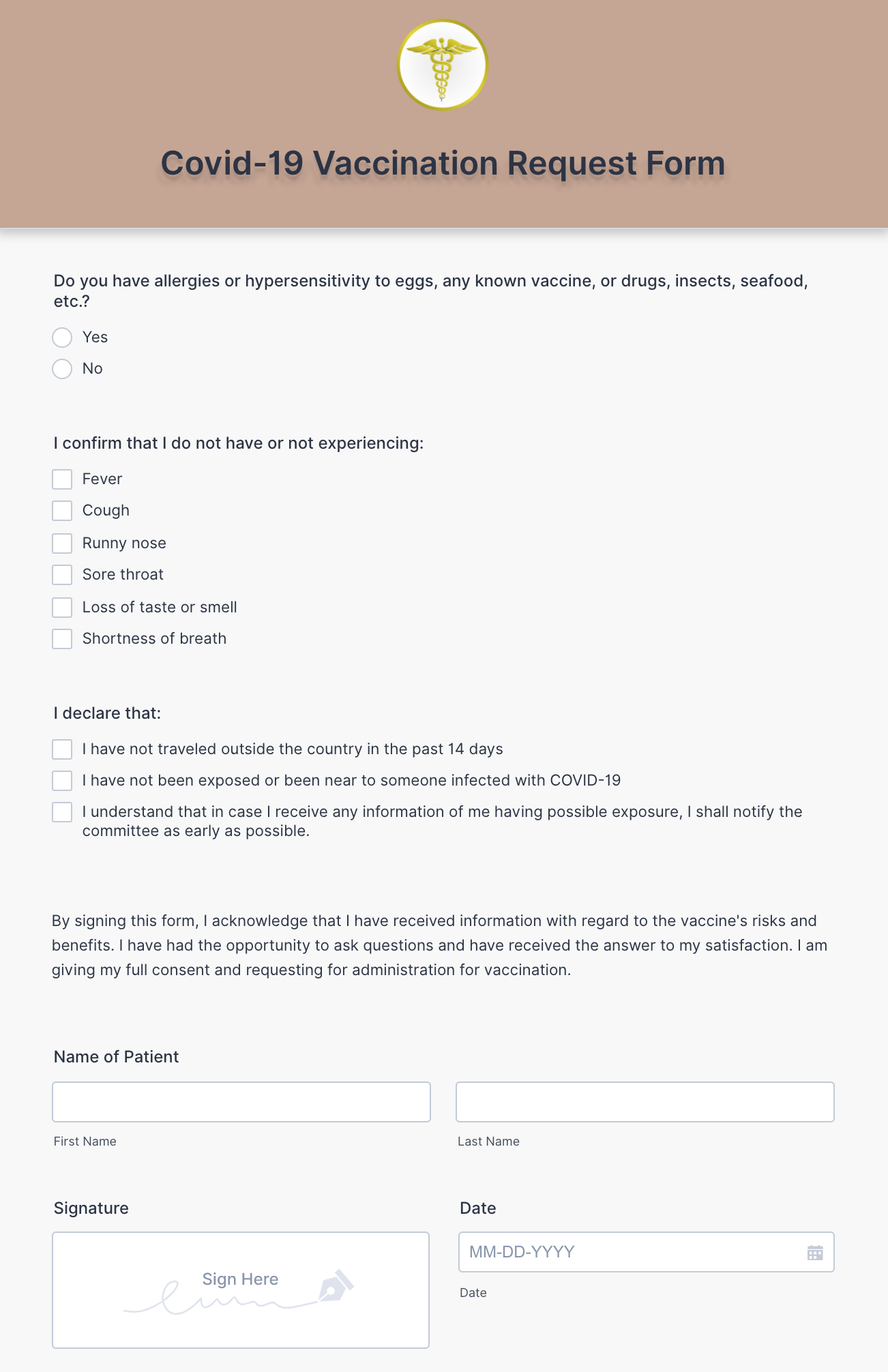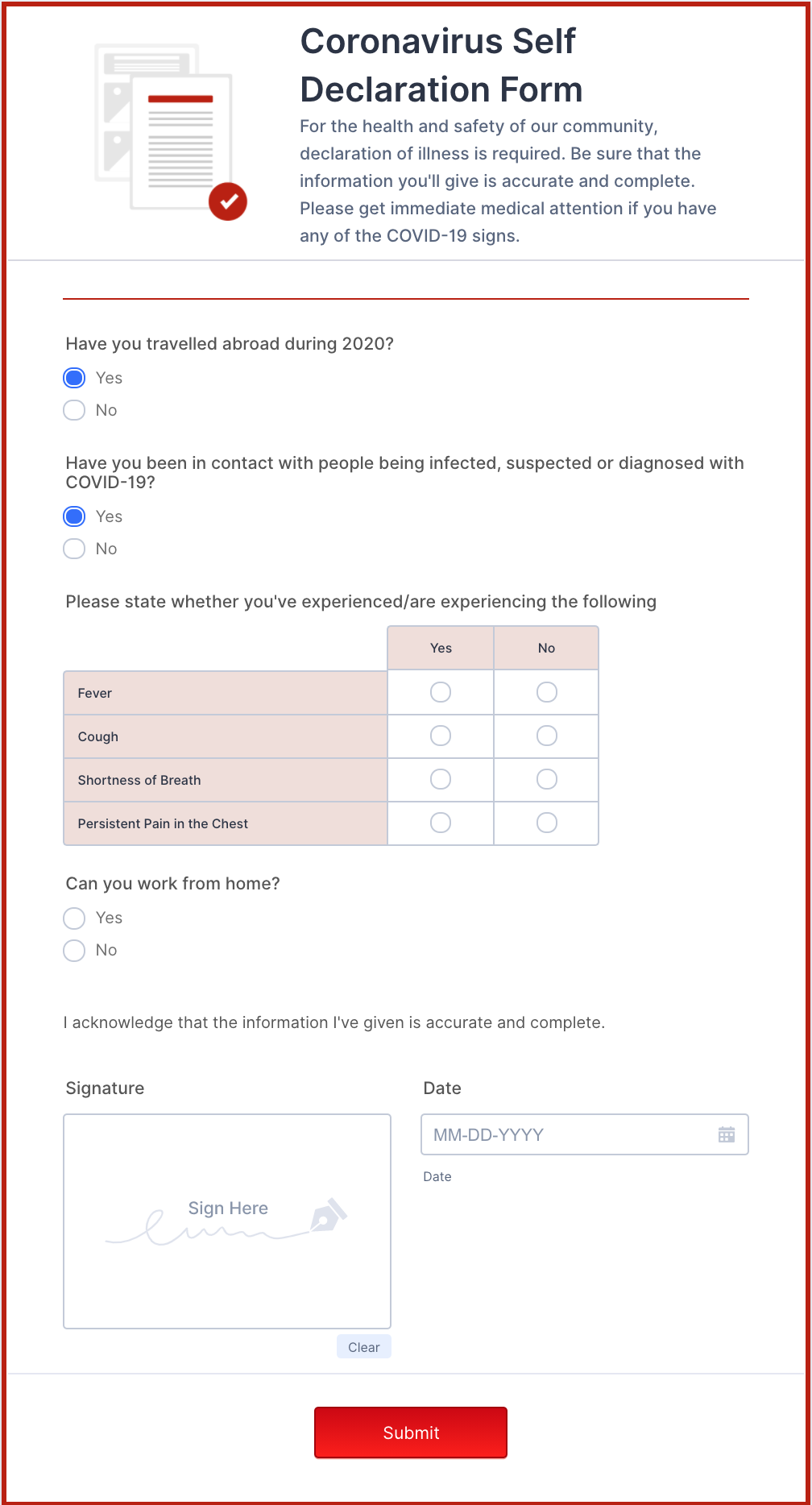As COVID-19 vaccine distribution gains momentum, healthcare providers need to implement systems to manage associated administrative tasks. One critical task is obtaining vaccination consent before administering each dose. These consent forms ensure that each patient reviews and understands certain information before receiving the vaccine.
Understanding consent: How it works
Regardless of the type of treatment you’re administering, you have to provide information to every patient about the possible consequences and risks associated with the treatment. Not only do healthcare providers need to communicate this essential information, but patients must acknowledge that they understand these potential risks.
In the medical industry, consent means that each patient gives their permission before receiving treatment or undergoing a procedure. Whether it’s a blood draw, medication, or surgery, a patient must always give consent before you can move forward with medical services.
Consent is only valid when certain qualifications are met:
- Capacity. The patient must have the capacity to make an informed decision. If the patient doesn’t meet the country’s legal age of consent, then a guardian or parent can participate in the decision-making process. In a situation where a patient isn’t capable of making a decision, such as an aging adult with dementia, then someone who has medical power of attorney can consent to the treatment on behalf of the patient.
- Disclosure. The medical provider must explain the treatment in detail and include all associated risks and benefits.
- Understanding. Each patient (or designated decision maker) must understand the information the healthcare provider gives about the treatment, including risks and potential consequences.
- Voluntary consent and documentation. A patient must voluntarily consent to the treatment. Most countries have laws to prevent forced medical treatments, which is why medical providers must obtain voluntary consent before moving forward. If the person doesn’t want to receive the COVID-19 vaccine, for instance, they can refuse it. The healthcare provider should have a verbal conversation with the patient to answer any questions. Though not required by U.S. federal law for vaccination, it’s safest to obtain consent in written form.
Specific consent requirements vary depending on location. Most countries have guidelines in place regulating the validity of consent and steps to follow when confirming consent. (Check with your local or state/provincial health department for applicable laws.)
Understanding consent for COVID-19 vaccines
Since COVID-19 vaccination is moving forward quickly, millions of people will receive the shot within a relatively short time frame. Vaccination consent is an especially crucial step before administering each dose in order to ensure the safety and efficiency of these efforts.
The information healthcare professionals provide about the COVID-19 vaccine must be clear and straightforward, including the benefits and potential side effects. Medical providers should always review potential contraindications with each patient to avoid serious side effects, such as an allergy to a component of the vaccine. Additionally, each patient must receive information about follow-up care and treatment if needed.
Every person has the right to ask additional questions and have a conversation about the consequences and risks they are accepting. Medical providers have a responsibility to ensure that each patient acknowledges they understand the potential risks of receiving the vaccine. Hospitals, medical clinics, pharmacies, and private practices need to be as transparent and detailed as possible, even while maintaining the tight schedule required to distribute available vaccine doses.
Organizing a system to collect vaccine consent
If you are a medical provider offering the COVID-19 vaccine, you need a system. Once you collect vaccination requests from patients who meet the qualifications for current eligibility, have each person fill out a COVID-19 vaccination consent form.
Medical providers find digital systems to be most effective for collecting appointment requests and vaccination consent forms. Through a HIPAA-friendly system, such as Jotform, you can gather information digitally before you administer each vaccine. The technical, physical, and administrative safeguards of Jotform’s HIPAA-friendly plans meet or exceed all HIPAA regulations for privacy and security.
Remember, you must be on a Gold or Enterprise Jotform plan to access features that help with HIPAA compliance.
Digital forms are not only a convenient way to gather documentation, but they also organize data and create an effective system for managing each patient’s documentation. With Jotform, you can rest easy knowing that you’re using a HIPAA-friendly platform and your patients’ protected health information (PHI) is secure. Jotform supports medical organizations of all sizes with form templates and a proven system for tracking PHI. Design your COVID-19 vaccination system using these registration and consent forms as well as many other coronavirus response forms. You can use these premade form templates or create a personalized form from scratch to meet your organization’s unique needs.










































































































Send Comment: